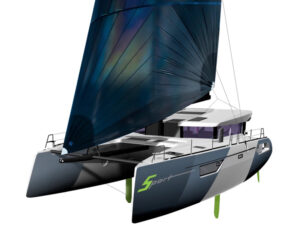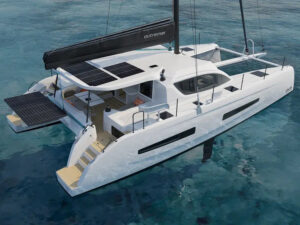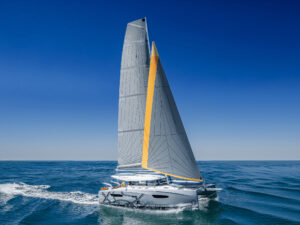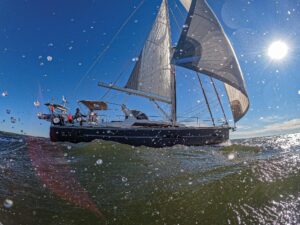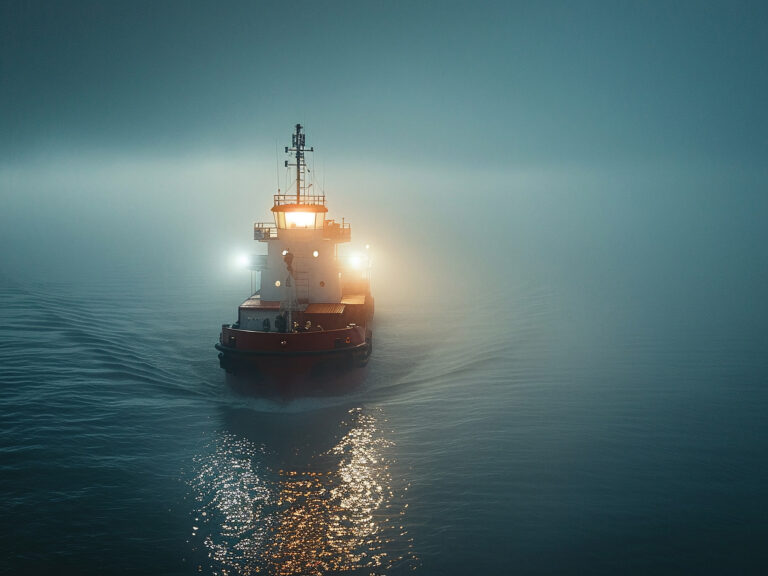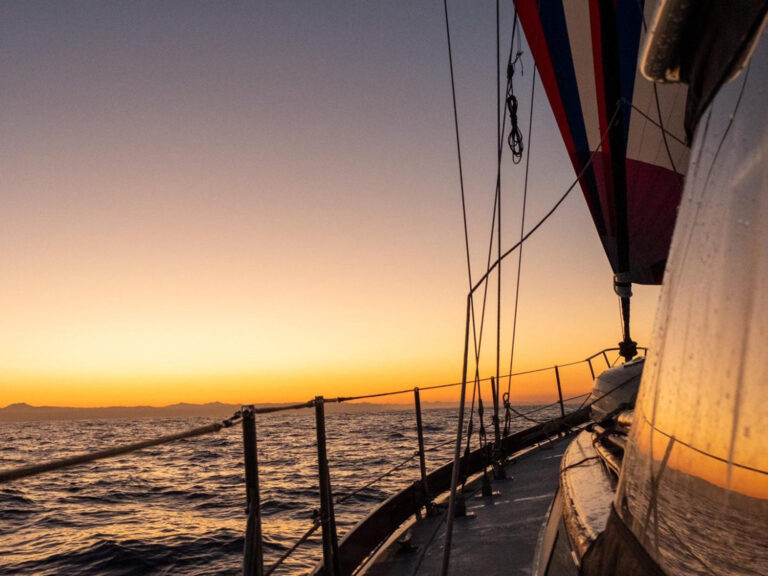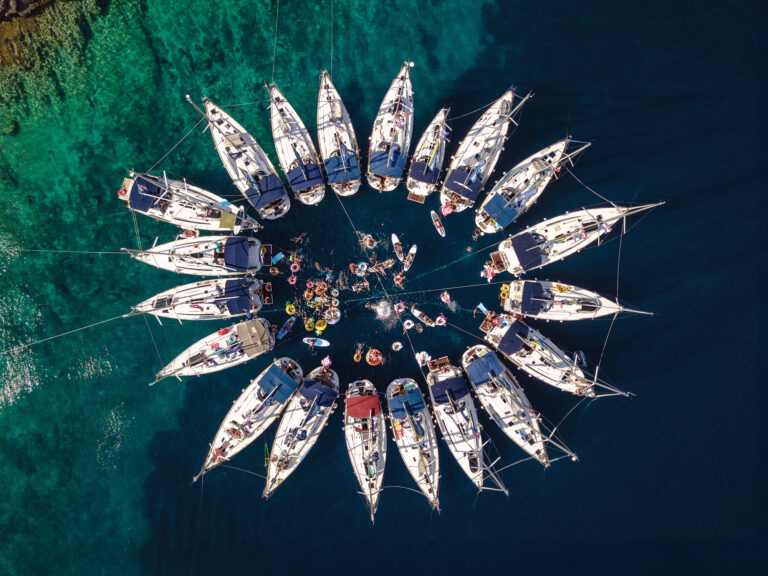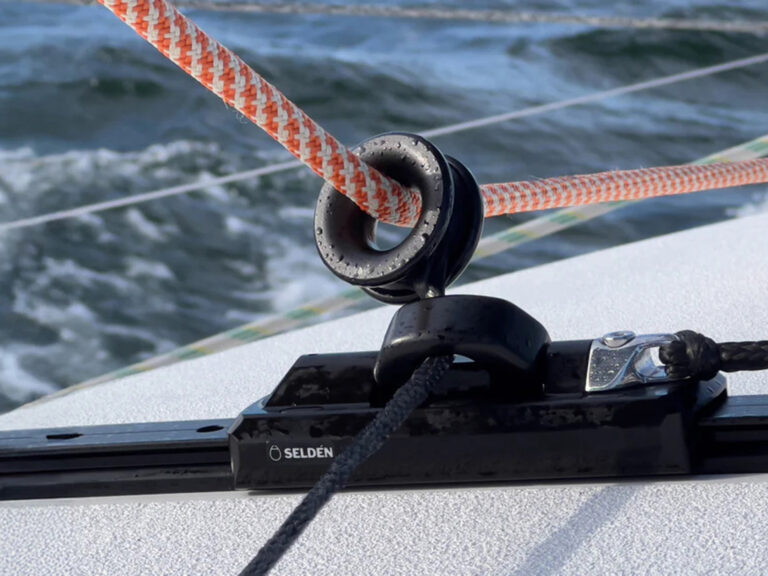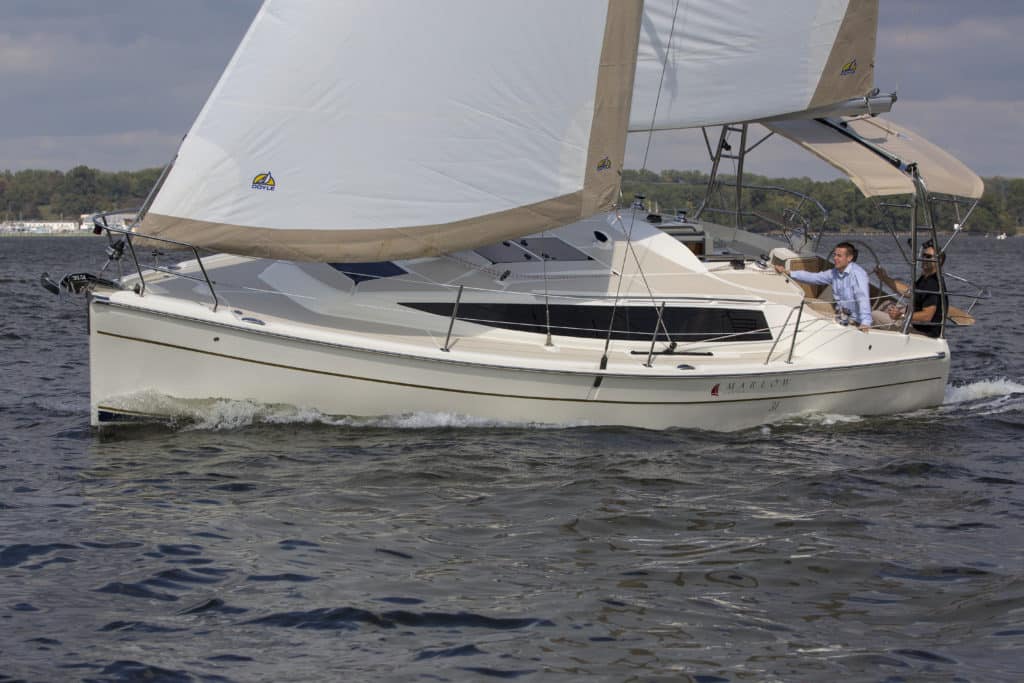
Once upon a time, I owned a J/30. As a racer/cruiser introduced in 1979, it lacked many cruising amenities, even for its era, but for a 30-footer it was plenty beamy (over 11 feet), and I always considered it a not-insubstantial vessel. Times change, of course, particularly with yacht designs, a point that was driven home as I stepped aboard the Marlow-Hunter 31 last fall. Thinking back on my cherished J boat, I had to smile. Though roughly a foot shorter than the latest offering from the well-established Florida builder, figuratively speaking, my old girl would have fit in this new 31-footer’s hip pocket. How was it even possible?
Well, the short answer is a quick summation of many of the characteristics shared by lots of contemporary production cruisers. Designers Glenn Henderson (a longtime Hunter hand) and David Marlow (a veteran powerboat builder who purchased the company three years ago) have incorporated a trendy hard chine just below the waterline and used it to maximize the dimensions and interior volume. Long waterline? Check. Extended topsides? Check. Max beam (almost 12 feet!) carried well aft? Check.
Indeed, the Marlow-Hunter 31 is a thoroughly modern pocket cruiser that also includes many familiar Hunter features, including a B&R rig with swept-back spreaders that eliminate the backstay. You’re not finding that on any imports. But when you start to scratch the surface, it’s also abundantly clear that there’s some serious innovation happening here, particularly in the methods and materials used to piece the boat together. We tested the M-H 31 on Chesapeake Bay during last fall’s Boat of the Year trials, and got totally skunked on breeze: zero, nothing, nada. It happens. But while a couple of the judges and I vainly tried to put the boat through its paces, David Marlow and the third member of our panel, systems expert Ed Sherman of the American Boat and Yacht Council, disappeared below, two salty dogs lost in private banter. Whatever were they discussing? Later, during deliberations, Sherman spilled the beans. “We had a fascinating conversation,” he said. “He’s a man on a mission who really wants to reinvent the Hunter brand. Part of the way he’s doing that is to take a hard look at long-term durability while trying to build a product that’s easier for his factory workers to assemble. He’s invested a huge amount of time and R & D in developing a database of what works and what doesn’t. It blew me away.
“Most of his experience is in the powerboat sector, but he has a broad nautical background, so he’s got some knowledge of hydrodynamics, aerodynamics and structural build,” he continued. “It’s evident in the hull layup, for instance, with the use of Kevlar forward to increase impact resistance. They’ve made some phenomenal decisions in how to address cores, where they’re going to be applied, and the type of fiberglass they use in the overall laminate. It’s pretty amazing, and it was impressive to talk to him about it.”
There’s the overview on the construction side. Judge Tim Murphy discussed specifics. “There’s definitely a new sheriff in town,” he said. “They’re doing a lot of things really right. There are no chopper guns in the layup shop anymore. Now they’re using biaxial cloth, and it’s engineered so the stress is carried in the right direction. They’re also using vinylester resin, which will really work against osmosis. Below the waterline, the boat is solid fiberglass, but in the topsides and deck they’ve eliminated balsa core and replaced it with Nida-Core, a honeycomb panel that’s lighter and stiffer. All good things.”
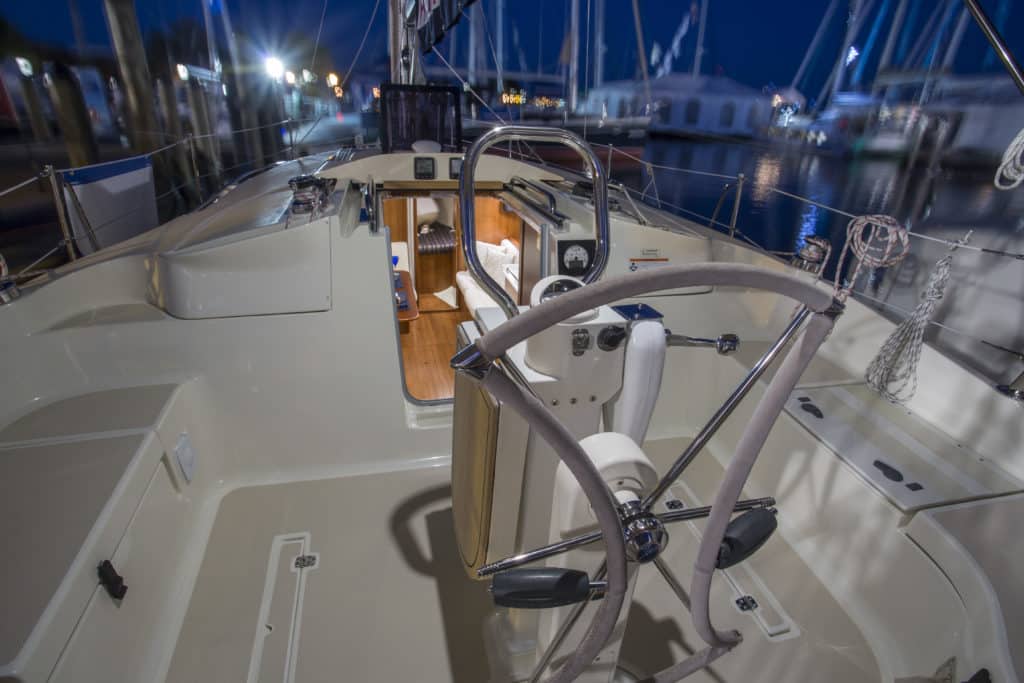
So, yes, a new day has dawned at Marlow-Hunter, especially on the manufacturing front. What about execution? The judges loved some items and questioned a few others, starting all the way aft, with the hatch in the transom opening into a dedicated storage locker for surfboards or kayaks. Let’s put it this way: Holes in boats that may allow the ingress of water make the judges very nervous.
Topsides, the centerpiece of the design is the expansive, beam-to-beam cockpit, which eschews traditional coamings to create the widest possible space. The coolest part, everyone agreed, was the nifty articulating Lewmar pedestal and steering wheel, operated with a foot pedal to swing from side to side so the helmsman can steer in comfort from either a windward or leeward position. (The wheel spokes also fold inward to permit easy access to the drop-down transom.) Despite the beam, with this arrangement, there’s no need for twin wheels.
As with previous Hunters, the traveler for the B&R mainsail is stationed atop a prominent arch, which also houses speakers, LED lights, a bimini and one end of the double-ended main sheet (the other is led to the cabin top). Over the years, I’ve sailed many Hunters with this setup, and it’s functional, though it does take some getting used to. (It’s tough to gauge where the traveler is positioned.) Judge Alvah Simon isn’t a fan, primarily because the arch necessitates a high gooseneck for the boom to clear it; this elevates the sail plan, and power in the B&R rig is really derived from the mainsail. Though our test boat was equipped with an optional in-mast furling main, Simon recommends the standard, traditional, fully battened one.
One last thing: Some members of our team, perhaps less nimble than they once were, wondered if it would be difficult getting into or out of the cockpit on a steep heel. (There is a step in the coachroof leading forward, but one of our judges initially mistook it for a seat.) With calm conditions, we didn’t get the chance to try.
Down below, the layout is spacious. There is a large head, a straight-line galley and roomy berths in the ends of the boat. Each is a bit of a trade-off. The forward cabin has great headroom but a slightly smaller V-berth. The aft bed, athwartships below the cockpit, is huge but in a more enclosed space. All in all, for well under $200,000, the Marlow-Hunter 31 is a whole lot of boat in a very manageable package. As for the company itself, we’re talking equal parts revolutionary and evolutionary.
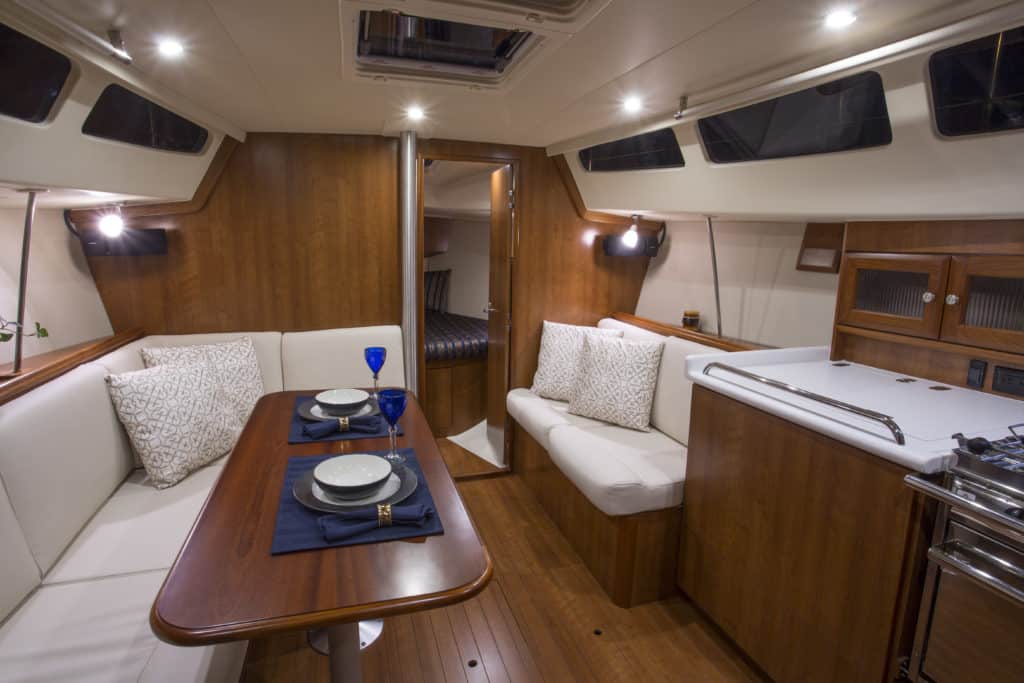
Specs:
LOA: 32’4″
LWL: 28’9″
Beam: 11’10”
Draft (shoal / deep): 4’5″ / 5’5″
Sail Area: 581 ft2
Ballast (shoal / deep): 3,525/3,379 lb.
Displacement (shoal / deep): 11,854/12,000 lb.
Ballast/Displacement: 0.28
Displacement/Length: 205
Sail Area/ Displacement: 17.7
Water: 50 gal.
Fuel: 21 gal.
Holding: 20 gal.
Hast Height (Standard): 46’7″
Engine: 29 hp Yanmar (saildrive)
Designers: Glenn Henderson/David Marlow
Price: $160,000
Marlow-Hunter LLC
386-462-3629
www.marlow-hunter.com
Herb McCormick is CW’s executive editor.

